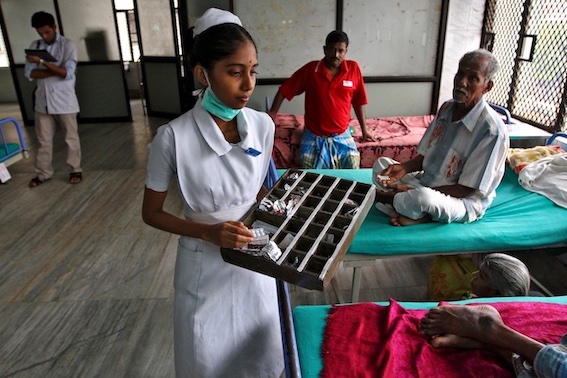Bala Vikasa is a Telangana-based leading non-profit organisation with a 32-year legacy of pioneering high-impact innovative multi-sectoral community-led sustainable development interventions in rural India. The ISO-certified organisation was founded by India-born Bala Theresa Singareddy and her French-Canadian husband Andre Gingras, recipients of Canada’s 2nd-highest civilian honor – the Meritorious Service Cross.
The organisation has been working relentlessly to ensure quality education to underprivileged meritorious students in rural areas, access to safe drinking water in villages along with hygiene and sanitation. They are also actively working in the areas of Water Conservation, Sustainable Agriculture, Women Empowerment, and Widow Emancipation and have impacted over 8 million poor people in 7,000 villages across 7 states.
Bala Vikasa has not only inspired several central and state government programmes, including Telangana’s Mission Kakatiya and the National Sansad Adarsh Gram Yojana, the organisation boasts of lasting relationships with rural communities, 30+ CSR partners and 250 nonprofits.
Bala Vikasa Executive Director Mr. Shoury Reddy, who has been associated with the organisation from the very first day of its existence opens up to The CSR Journal in an exclusive interaction hosted in its green and beautiful residential campus, located in Keesara in the outskirts of Hyderabad.
How and when did Bala Vikasa commence its journey?
This (Bala Vikasa) was founded by Ms. Bala Singareddy, who hails from a village called Reddypalem in Telangana. While studying in the US, more than 50 years ago, she met Andre Gingras, a French-Canadian man, got married to him and settled in Canada. Being from a village background, she was aware of the problems faced in rural areas in India. She could not enjoy her comfortable life in Canada as she was continuously having the urge to do something for her motherland.
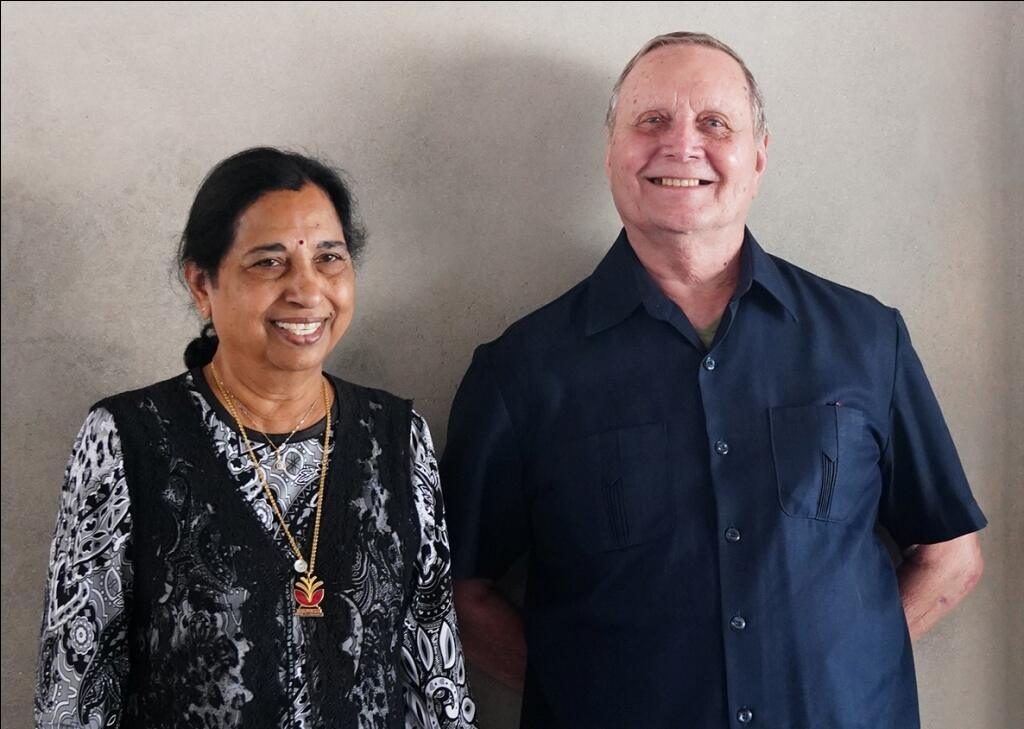
Soon after, when she came to visit her native place, the locals asked for her help for a water project in the Reddypalem village where there was a shortage of water supply. Then she funded the construction of a tank system for door to door water supply to the villagers. Seeing this, people from a neighbouring village also approached her asking for help for water. This way, she helped 2-3 villages from her personal money and gradually realised that the crisis is way bigger than what she can do to help them personally. She realised that she needs more people to work with her, to support her. This encouraged her to start a foundation in Canada with the name of SOPAR (Society for Partnership in Development) in 1977.
In 1991, a legal entity was created in India by the name of Bala Vikasa using Bala from Ms. Bala Singareddy’s name. Bala also means micro and we work for development of society at micro-level. We are not a welfare organisation. We are not here to feed the hungry or give medicine to the sick but we are here to sustain, to create impact at a societal level. We are a community-driven development organisation. Our work is to build the capacity of communities because we strongly believe that development must be community-driven otherwise it doesn’t work. We implement every programme with this philosophy.
After forming Bala Vikasa, we started implementing the programmes in a bigger way. We are into multiple activities including areas like women empowerment, school education, water conservation, sustainable agriculture, clean drinking water project etc.
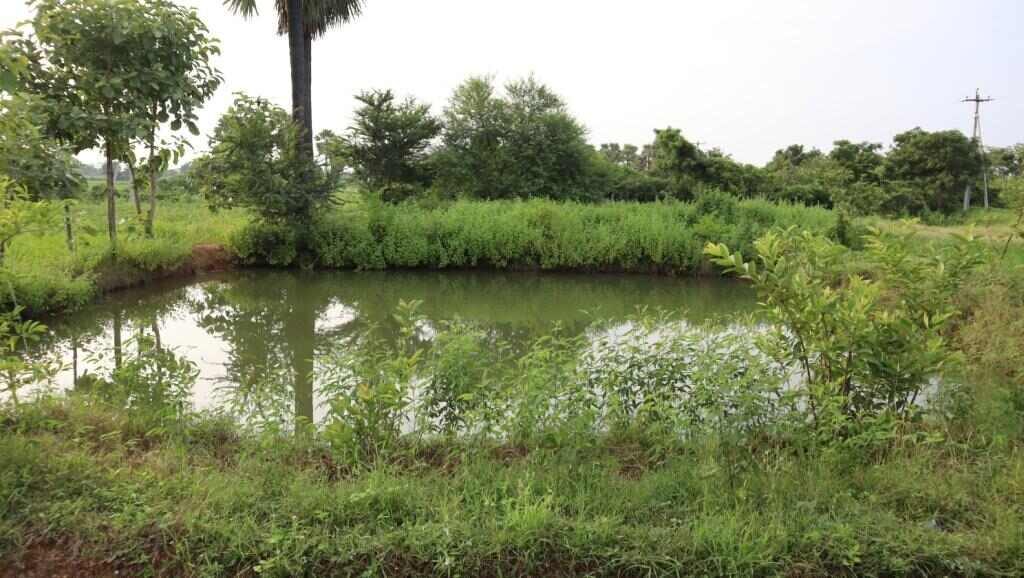
What kind of challenges have you faced while implementing programmes in rural areas?
Challenges are of two types, one is at the community level and one is developing a committed and competent team. It is difficult to implement programmes if you don’t have competent people and it is not easy to find people with commitment, competence and good attitude. This is a challenge which we have faced in the past but now we have a competent team who are very dedicated and have become part of the Bala Vikasa family.
Talking about challenges at the community level, there is politics; there are economic differences and other problems. Community development is not so easy. There are multiple problems while working with a community but there are ways to handle these. We give a lot of priority on building the capacity of our own staff; otherwise they cannot perform at the village level. If any staff complains that they are unable to explain something to the villagers or change a wrong practice, we consider it not as the villagers’ fault but as our inability that we could not make the change happen. We have a very good experience of dealing with the youth, farmers, women and politicians in villages. Our team is well equipped to deal with challenges at a community level, we have that expertise.
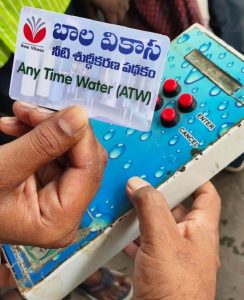
Which are the two most important programmes of Bala Vikasa?
Our most important programme is access to clean drinking water and water conservation – We have been doing this since our day one. We have 4-5 different types of water programmes depending upon the community, the geography, technical issues and problems in water like fluoride content or arsenic content, or contaminated water. Sometimes there is access to water but it is not potable. For different kinds of problems there are different solutions.
Access to clean drinking water is one of our priorities. Also, because water level is going down, we aim to conserve it by construction of tanks, borewell recharge, check dams, installing new tanks – there are so many different things that we are doing including raising awareness. This water conservation programme is being implemented in Tamil Nadu, Maharashtra, Odisha, Andhra Pradesh and Telangana. Our clean drinking water programme is being implemented in Telangana, Maharashtra and Andhra Pradesh.
Another major programme is capacity building and promotion of model communities, which is the need of the hour. The more capacity building is done, the more performance improves which in turn leads to greater impact. Every stakeholder needs capacity building. We have worked with 100 villages, out of which 50 villages have received block level or district level or state level recognition for what they are doing.
How is a model village developed?
The first thing that we try to do in any village, is building the social capital. You cannot do anything until you have unity, that’s the key thing. If anybody wants to invest for a model village, be it a bank, an NGO, a corporate or the government, they will obviously select a village which has possibilities, where there is peace, unity. This is because if you invest some money there, they will utilise it properly and give you good results, therefore making your programme successful. We tell the villagers that their problems are not going to bring them money, but if they come together, show their unity, then people will come forward to understand their cause and support them. One such village is Gangadevipalli (in Telangana’s Warangal district), which has become an ideal village or model village for their exemplary fight against water problem.
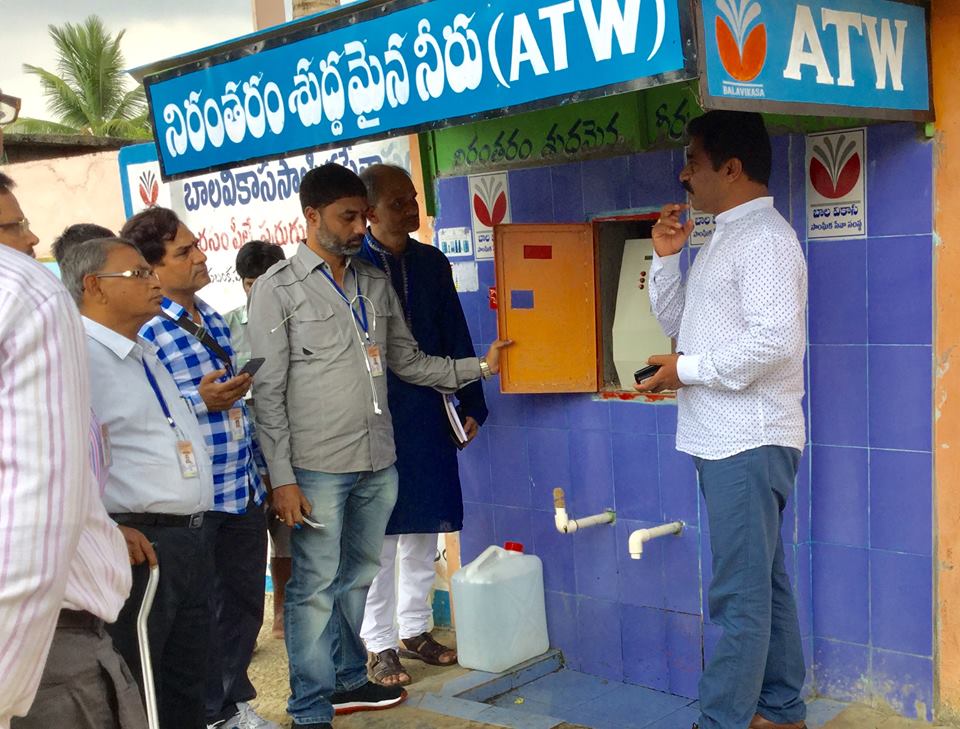
Did the Covid- 19 pandemic affect any of your programmes?
Our village programme was unfortunately disturbed due to the Covid- 19 pandemic because you need regular meetings and follow ups to sustain this kind of a programme. Now we are coming back stronger and are going to call it the “Gram Panchayat incubation programme”. Under this, we will train all the Panchayat members of the villages as well as our employees working in the village on different aspects. We will work with them for one year and help them to create a vision for the next 5-10 years. As of now, we will do this within Telangana.
What has Bala Vikasa done to combat the issue of open defecation in rural areas?
Open defecation was definitely a big problem 20 years ago. That’s the reason much before governments thought about this, we ourselves funded 21,000 toilets in villages. Once the government started the Swachh Bharat Abhiyan or Clean India Mission to fight the issue of open defecation, then we stopped doing this, as the government started funding toilets. We are now encouraging people to access the government’s scheme. More than 90 percent families now have a toilet with their home across Telangana.
Which are the corporates funding Bala Vikasa through CSR?
Franklin Templeton has been funding us for almost 6 years. Apart from that there are Pernod Ricard, Nomura and Cholamandalam. CII Chennai has also been funding us for the last 5-6 years. Hyderabad-based pharma companies like Gland Pharma, Aurobindo Pharma, Divi’s Laboratories are some of the major companies funding us through CSR.
Ahana Bhattacharya can be reached at ahana@thecsrjournal.in

